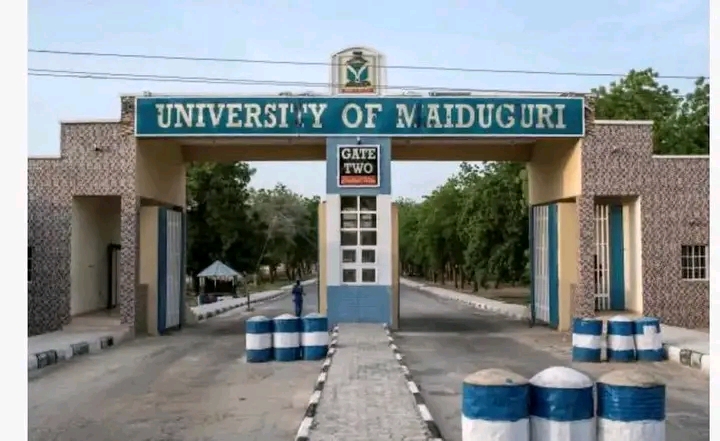By Abdul Lauya
In a move laced with symbolism and political tribute, President Bola Ahmed Tinubu on Thursday announced the renaming of the University of Maiduguri to Muhammadu Buhari University, in honour of his late predecessor, former President Muhammadu Buhari.
The declaration came during a special Federal Executive Council (FEC) session held at the Council Chambers of the Presidential Villa, Abuja. The gathering, attended by Vice President Kashim Shettima, Senate President Godswill Akpabio, Speaker Tajudeen Abbas, state governors, ministers, and members of the late president’s family, was convened as a solemn tribute to Buhari, who died in London on July 13 and was buried in Daura, Katsina State, two days later.
President Tinubu described Buhari as a patriot who “lived his values in action, not in rhetoric,” noting that his integrity, moral uprightness, and disciplined leadership would remain a model for future generations.
“As a mark of honour and in recognition of his contributions to national development, the University of Maiduguri will henceforth be known as Muhammadu Buhari University, Maiduguri,” Tinubu declared to a round of applause.
Though framed as a tribute, the renaming draws Nigeria once again into a recurring debate over institutional legacy, identity, and historical memory.
Established in 1975, the University of Maiduguri, known widely by its acronym UNIMAID, has served as the intellectual backbone of North-East Nigeria, with notable contributions in medicine, agriculture, conflict research, and Islamic studies. From its modest origins with 743 students, it grew into a comprehensive federal institution with 12 faculties and tens of thousands of students, surviving terrorism threats and regional instability.
However, renaming federal universities after political figures has a checkered history in Nigeria. While past examples, such as Obafemi Awolowo University (formerly University of Ife) and Alex Ekwueme Federal University, were generally accepted due to close ties between the honoree and the institution, others like the 2012 attempt to rename the University of Lagos as “Moshood Abiola University” provoked widespread protests and were later reversed.
Critics argue that such changes often come without stakeholder consultation, distort institutional legacy, and create confusion for alumni, employers, and international partners. Degrees from renamed institutions typically require a “(formerly…)” clarification before they are recognized, a burden some say is unnecessary and symbolic at best.
Eye Reporters notes that while Buhari’s national legacy is undisputed in certain circles, particularly for his anti-corruption stance and emphasis on fiscal prudence, the renaming of UNIMAID may spark quiet discontent within the academic and alumni communities, particularly in the North-East, who feel a deep emotional and historical attachment to the original name.
At the time of filing this report, the presidency had not disclosed whether enabling legislation would be sent to the National Assembly to formally amend the university’s establishing Act, a necessary legal step for the renaming to take full effect.
Nonetheless, the gesture marks a defining moment in the posthumous canonization of Buhari’s legacy, a calculated fusion of tribute, memory, and political messaging by his successor.


